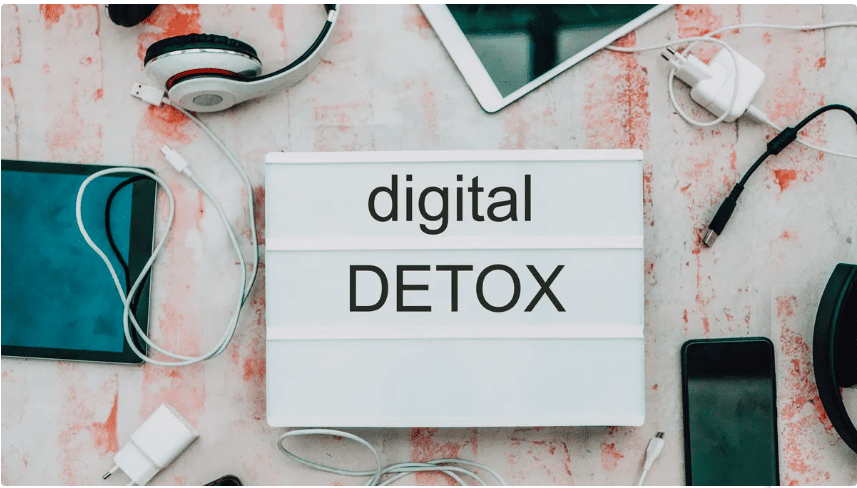Mental Health
The Link Between COVID-19 and Depression

The Link Between COVID-19 and Depression
The COVID-19 pandemic has had a profound impact on various aspects of our lives, including our physical and mental well-being. As the world continues to grapple with the ongoing effects of the virus, it is important to understand the potential causes of COVID-19-related depression and how it can be addressed.
In this article, we will explore the factors contributing to COVID-19 depression and provide strategies for managing and improving mental health during these challenging times.
The Impact of COVID-19 on Mental Health
The pandemic has created a perfect storm of circumstances that can contribute to feelings of depression and anxiety. The uncertainty surrounding the virus, the implementation of social distancing measures, and the disruption of daily routines have all taken a toll on our mental well-being.
One of the main factors contributing to COVID-19 depression is prolonged isolation and lack of social interaction. Human beings are social creatures, and the sudden absence of face-to-face contact with friends, family, and colleagues can lead to feelings of loneliness and sadness. Additionally, the fear of contracting the virus and the constant exposure to distressing news can further exacerbate these emotions.
Strategies for Managing COVID-19 Depression
While the challenges posed by the pandemic are significant, some steps can be taken to manage and alleviate COVID-19 depression. Here are some strategies to consider:
1. Maintain a Routine
Establishing a daily routine can provide a sense of structure and stability during these uncertain times. Set aside specific times for work or study, exercise, leisure activities, and self-care. Having a routine can help create a sense of normalcy and reduce feelings of anxiety and depression.
2. Stay Connected
Although physical distancing is necessary, it is important to stay connected with loved ones through virtual means. Schedule regular video calls or phone conversations with friends and family to maintain social connections and combat feelings of isolation. Joining online communities or support groups can also provide a sense of belonging and understanding.
3. Prioritize Self-Care
Take care of your physical and mental well-being by practicing self-care activities. Engage in activities that bring you joy and relaxation, such as reading, listening to music, practicing mindfulness or meditation, or pursuing hobbies. Prioritizing self-care can help reduce stress and improve overall mental health.
4. Seek Professional Help
If feelings of depression persist or become overwhelming, do not hesitate to seek professional help. Many mental health professionals offer virtual therapy sessions, which can be accessed from the comfort of your own home. They can provide guidance, support, and evidence-based treatments to help manage COVID-19 depression.
Frequently Asked Questions about COVID-19 Depression
1. How long do COVID-19 depression symptoms last?
The duration of COVID-19 depression symptoms can vary from person to person. Some individuals may experience temporary feelings of sadness and anxiety, while others may develop more persistent depressive symptoms. If symptoms persist for an extended period or significantly impact daily functioning, it is important to seek professional help.
2. Are there any specific risk factors for COVID-19 depression?
While anyone can experience COVID-19 depression, certain factors may increase the risk. These include a history of mental health issues, pre-existing medical conditions, social isolation, financial stress, and exposure to traumatic events. However, it is important to remember that everyone’s experience is unique, and individual circumstances can vary.
3. Can lifestyle changes help improve COVID-19 depression?
Yes, adopting healthy lifestyle changes can have a positive impact on mental health. Engaging in regular physical exercise, maintaining a balanced diet, getting enough sleep, and avoiding excessive alcohol or drug use can all contribute to improved well-being. However, it is essential to seek professional help if symptoms persist or worsen.
4. How can I support a loved one experiencing COVID-19 depression?
Supporting a loved one with COVID-19 depression involves being understanding, patient, and empathetic. Encourage them to seek professional help if needed, and offer to assist with finding resources or scheduling appointments.
Regularly check in on their well-being and provide a listening ear. Remember that professional help is crucial, and encourage them to reach out to mental health professionals.
5. Are there any online resources available for managing COVID-19 depression?
Yes, there are several online resources available for managing COVID-19 depression. Organizations such as the World Health Organization (WHO) and the National Alliance on Mental Illness (NAMI) offer information, support, and resources for individuals experiencing mental health difficulties during the pandemic. Additionally, many mental health professionals offer virtual therapy sessions that can be accessed online.
6. Can COVID-19 depression be prevented?
While it may not be possible to prevent COVID-19 depression entirely, some steps can be taken to reduce the risk and manage symptoms. Prioritizing self-care, staying connected with loved ones, seeking professional help when needed, and maintaining a healthy lifestyle can all contribute to better mental well-being during these challenging times.
7. How does COVID-19 depression differ from general depression?
COVID-19 depression refers specifically to depressive symptoms that arise as a result of the pandemic and its associated challenges. While the symptoms may overlap with general depression, the unique circumstances surrounding the pandemic, such as social isolation and fear of the virus, can contribute to the development or exacerbation of depressive symptoms.
Conclusion
The COVID-19 pandemic has had a significant impact on mental health, leading to an increase in cases of COVID-19 depression. It is crucial to recognize the potential causes of this condition and take proactive steps to manage and improve mental well-being.
By maintaining routines, staying connected, prioritizing self-care, and seeking professional help when needed, individuals can navigate the challenges of the pandemic and emerge with improved mental resilience.
Mental Health
The Power of a Digital Detox: Managing Anxiety and Stress

Can a Digital Detox Help with Anxiety and Stress?
In today’s fast-paced and technology-driven world, it’s no surprise that many of us find ourselves constantly connected and glued to our devices. Whether it’s checking emails, scrolling through social media, or binge-watching our favorite shows, our reliance on technology has become ingrained in our daily lives.
However, this constant exposure to screens and the digital world can hurt our mental health, specifically when it comes to anxiety and stress.
The Impact of Technology on Mental Health
Technology has undoubtedly revolutionized the way we live, work, and communicate. It has opened up endless possibilities and opportunities, but it has also brought along its fair share of challenges.
The constant stream of information, notifications, and the pressure to always be available can take a toll on our mental well-being.
Understanding Anxiety and Stress
Anxiety and stress are common mental health issues that affect millions of people worldwide. Anxiety is characterized by excessive worry, fear, and a constant feeling of unease, while stress is the body’s response to a demand or threat. Both can manifest in various ways, including physical symptoms like headaches, insomnia, and digestive problems.
The Role of Digital Detox
A digital detox refers to a period when an individual intentionally disconnects from their devices and takes a break from the digital world. It involves stepping away from screens, social media, and other digital distractions to focus on real-life experiences and relationships. But can a digital detox help with anxiety and stress?
The Benefits of a Digital Detox
1. Reduced Information Overload: Constant exposure to news, updates, and notifications can be overwhelming. Taking a break from the digital world allows you to disconnect from this constant bombardment of information and gives your mind a chance to rest.
2. Improved Sleep Quality: The blue light emitted by screens can disrupt our sleep patterns. By disconnecting from devices before bedtime, you give your brain a chance to wind down and promote better sleep quality.
3. Increased Mindfulness: Digital detoxes encourage us to be more present in the moment and engage with our surroundings. This promotes mindfulness, which has been shown to reduce anxiety and stress levels.
4. Enhanced Social Connections: Spending less time on screens means more time for face-to-face interactions and building meaningful relationships. Strong social connections are vital for our mental well-being and can help alleviate feelings of anxiety and stress.
5. Boosted Productivity: Constant distractions from notifications and social media can hinder our productivity. Taking a break from these distractions allows us to focus better and accomplish tasks more efficiently.
Implementing a Digital Detox
If you’re considering a digital detox, here are some tips to help you get started:
1. Set Clear Boundaries: Decide on the duration and scope of your detox. Will it be a day, a weekend, or a week-long break? Will you completely disconnect or allow limited use for work-related purposes?
2. Communicate with Others: Let your friends, family, and colleagues know about your digital detox plans, so they understand your unavailability during that time.
3. Find Alternative Activities: Plan activities that don’t involve screens, such as reading a book, going for a walk, practicing mindfulness or meditation, or engaging in a hobby you enjoy.
4. Create a Supportive Environment: Remove temptations by keeping devices out of sight or turning off notifications. Consider using apps or browser extensions that limit your access to certain websites or apps during your detox.
5. Reflect and Evaluate: Use this time to reflect on your relationship with technology and how it impacts your mental well-being. Take note of any positive changes you experience during your detox and consider incorporating them into your daily life.
Conclusion
In conclusion, a digital detox can indeed help with anxiety and stress. By disconnecting from the digital world, we allow ourselves to recharge, focus on real-life experiences, and prioritize our mental well-being. However, it’s important to remember that a digital detox is not a one-size-fits-all solution.
It’s essential to find a balance that works for you and incorporate healthy technology habits into your daily life. So, take a break, unplug, and give yourself the gift of a digital detox for a healthier mind and a happier life.
-

 Trending Stories1 year ago
Trending Stories1 year agoCDC: 1 in 4 Americans Still COVID-Free by End of 2022
-

 Health5 years ago
Health5 years agoMeghan Trainor Shares Motivational New Song ‘Blink’
-

 Health2 years ago
Health2 years agoHow Long Does Monkey Pox Last Before It Surfaces in the Body?
-

 Health2 years ago
Health2 years agoWhat Causes Swollen Body? Understanding Edema and its Triggers
-

 Health3 years ago
Health3 years agoNutrition and the Importance of a Fitness Program – 3 Things to Know
-

 Health3 years ago
Health3 years ago5 Weird Reasons Why Pimples Disappear After Marriage
-

 Health3 months ago
Health3 months agoHow Do Pawpaw Seeds Support Cardiovascular Health?
-

 Health2 years ago
Health2 years agoHealth Benefits Of Pawpaw Seed? 7 Things To Know





